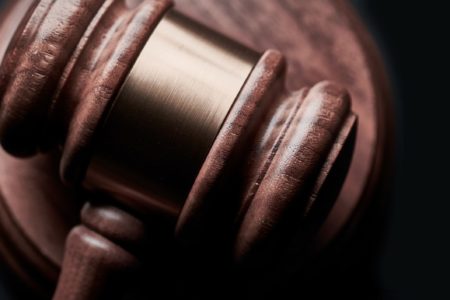In a world where public discourse often turns heated, few events shake the foundation of free expression like the senseless violence that unfolded on a university campus. On September 10, 2025, the vibrant voice of a key figure in American conservatism was silenced forever. Charlie Kirk, the founder of Turning Point USA, was delivering a speech at Utah Valley University in Orem, Utah, when gunfire erupted, claiming his life in an instant. What followed was a whirlwind of confusion, deception, and revelations that exposed deeper societal ills. This incident not only highlights the dangers faced by those who champion traditional values but also raises urgent questions about justice, morality, and the protection of our public spaces.

The shooting sent shockwaves through communities across the nation, prompting immediate calls for enhanced security at educational institutions and a reevaluation of how we handle political gatherings. As details emerged, the story took unexpected turns, involving a misguided individual whose actions complicated the pursuit of truth. Let’s break down what happened, step by step, and examine the broader lessons we can draw from this tragedy.
The Fateful Day at Utah Valley University
Utah Valley University, nestled in the picturesque city of Orem, has long been a hub for academic and cultural events. On that crisp September evening, hundreds gathered in the university’s auditorium to hear Charlie Kirk speak on topics ranging from youth empowerment to fiscal responsibility—issues that resonate deeply with many Americans tired of government overreach. Kirk, known for his sharp wit and unapologetic defense of constitutional principles, was midway through his address when chaos ensued.
Eyewitness accounts describe a single shooter firing from the crowd, striking Kirk fatally before fleeing amid the pandemonium. Campus security and local law enforcement responded swiftly, but the initial moments were marked by confusion. Students and attendees scrambled for safety, some capturing the horror on their phones, which later circulated widely on social media. The Orem Police Department, in coordination with federal agencies, locked down the area, but the perpetrator remained at large in those early hours.
This was not just an isolated act of violence; it struck at the heart of open dialogue on college campuses. Universities should be places where ideas clash freely, not battlegrounds for ideological warfare. The fact that such an event occurred in a state like Utah, known for its strong community values and low crime rates, only amplifies the outrage. Investigators quickly pieced together forensic evidence from the scene, including bullet casings and surveillance footage, but the real twist came from an unlikely source—a man who stepped forward with a confession that turned out to be anything but genuine.
Who Was Charlie Kirk? A Legacy of Advocacy
To understand the gravity of this loss, it’s essential to reflect on Charlie Kirk’s contributions. Born in 1993, Kirk rose to prominence as a young conservative commentator, co-founding Turning Point USA in 2012. The organization aimed to mobilize college students around principles like limited government, free markets, and personal responsibility—ideas that have empowered countless young people to engage in politics.
Kirk’s debates with progressive figures, his podcasts, and his books like “The MAGA Doctrine” inspired a generation to question the status quo. He wasn’t afraid to tackle tough issues, from border security to educational reform, always emphasizing the importance of hard work and individual liberty. His appearances on major networks and at events nationwide made him a target for critics, but also a beacon for those who felt underrepresented in mainstream media.
The shooting at Utah Valley University robbed the nation of a passionate advocate at the peak of his influence. Friends and colleagues described him as tireless, often traveling coast to coast to rally support for conservative causes. In the days following his death, tributes poured in from political leaders, emphasizing how his work strengthened the fabric of American society. Yet, amid the grief, the investigation uncovered layers of deceit that shifted focus from the victim to a peripheral figure whose actions spoke volumes about moral decay.
George Zinn’s False Confession: A Deliberate Deception
Enter George Zinn, a 71-year-old resident of the area, who inserted himself into the narrative in a way that baffled authorities. Shortly after the shooting, Zinn approached police and claimed responsibility for the act. He spun a tale of motive, suggesting he acted alone out of ideological disagreement. At first glance, this seemed like a breakthrough— a quick resolution to a high-profile crime.
But as detectives delved deeper, inconsistencies piled up. Zinn had no weapon on him, no gunshot residue, and alibi witnesses placed him elsewhere during the actual shooting. Surveillance videos confirmed he wasn’t near the auditorium when the shots were fired. It soon became clear that his confession was fabricated, designed to mislead investigators and buy time for the real culprit to escape. Why would someone do this? Speculation abounds, but one thing is certain: such interference undermines the rule of law and disrespects the memory of the fallen.
Zinn’s actions weren’t just misguided; they were dangerous. In a time when trust in institutions is already fragile, false claims like this erode public confidence and divert resources from catching the actual perpetrator. Law enforcement officials noted that his stunt could have allowed the shooter to cross state lines or destroy evidence, prolonging the agony for Kirk’s family and supporters. This episode serves as a stark reminder that heroism isn’t found in lies, but in truth and accountability.
Forensic Revelations: Beyond the Confession
The plot thickened when authorities executed a search warrant on Zinn’s belongings, including his smartphone. What they discovered was far more disturbing than a mere false confession. Forensic analysis revealed explicit images involving minors—child pornography that violated federal and state laws. This finding shifted the case from one of simple obstruction to a multifaceted criminal probe.
Experts in digital forensics combed through the device, uncovering files that depicted the sexual exploitation of children. Zinn, who had no prior criminal record publicly known, now faces felony charges for possession and distribution of such material. The discovery sent ripples through the community, prompting discussions about hidden vices in seemingly ordinary lives. How does someone harbor such darkness while inserting themselves into a national tragedy?
This aspect of the case highlights a broader societal issue: the prevalence of child exploitation in the digital age. With easy access to the internet, predators can operate in shadows, but advancements in forensic technology are closing those gaps. Investigators praised the swift action, noting that tips from the public and inter-agency cooperation were crucial. Yet, it begs the question—how many more like Zinn are out there, blending into society while committing heinous acts?
Legal Charges and the Path to Justice
George Zinn’s deception didn’t go unpunished. He was promptly charged with obstruction of justice, a serious offense that carries potential prison time. Under Utah law, intentionally misleading police in a homicide investigation can result in years behind bars, especially when it impedes the capture of a killer. Prosecutors argued that his actions not only wasted valuable time but also endangered lives by allowing the shooter to remain free.
Adding to his woes, the child pornography findings led to multiple counts of sexual exploitation of a minor. Federal guidelines for such crimes are stringent, often mandating minimum sentences to protect vulnerable children. Zinn’s arraignment drew media attention, with his defense team claiming diminished capacity due to age, but the evidence appears overwhelming. As the case proceeds, it will test the boundaries of intent and accountability in the justice system.
Meanwhile, the hunt for the real shooter continues. Authorities have released sketches and appealed for witnesses, emphasizing that tips could be anonymous. The FBI’s involvement suggests possible broader motives, perhaps tied to political extremism. Justice for Charlie Kirk demands nothing less than a thorough, unbiased pursuit, free from distractions like Zinn’s interference.
Broader Implications: Safety, Morality, and Free Speech
This tragedy at Utah Valley University isn’t just about one man’s death or another’s lies; it’s a wake-up call for America. Campuses, once safe havens for learning, now face threats from those who can’t tolerate opposing views. Enhancing security measures— from metal detectors to trained personnel—must become a priority to safeguard speakers and attendees alike.
Moreover, the child pornography element exposes the urgent need to combat online exploitation. Parents, educators, and lawmakers should push for stronger filters, education on digital safety, and harsher penalties for offenders. It’s a moral imperative to protect the innocent from predators who lurk in plain sight.
On a deeper level, Kirk’s assassination underscores the fragility of free speech. In an era of polarized debates, violence should never replace dialogue. Communities must come together to reject extremism and foster environments where ideas can flourish without fear. The conservative movement, in particular, has lost a champion, but his ideals live on, inspiring others to carry the torch.
Moving Forward: Honoring a Legacy and Demanding Accountability
As the dust settles on this harrowing event, the nation mourns Charlie Kirk while grappling with the revelations about George Zinn. The false confession and subsequent charges paint a picture of a society wrestling with truth versus deception, innocence versus corruption. Kirk’s family has called for privacy amid their grief, but also for swift justice to prevent future atrocities.
In Orem and beyond, vigils and memorials have sprung up, celebrating Kirk’s life and work. Political figures have vowed to continue his fight for core American values, ensuring his voice echoes through generations. As for Zinn, his trial will serve as a cautionary tale about the consequences of meddling in justice and harboring dark secrets.
This story, tragic as it is, reminds us of the resilience of the human spirit. By learning from it, we can build a safer, more just world—one where leaders like Kirk can speak freely, and wrongdoers like Zinn face the full weight of the law. The road ahead may be long, but commitment to truth and morality will guide us through.
(Word count: 1,248)







